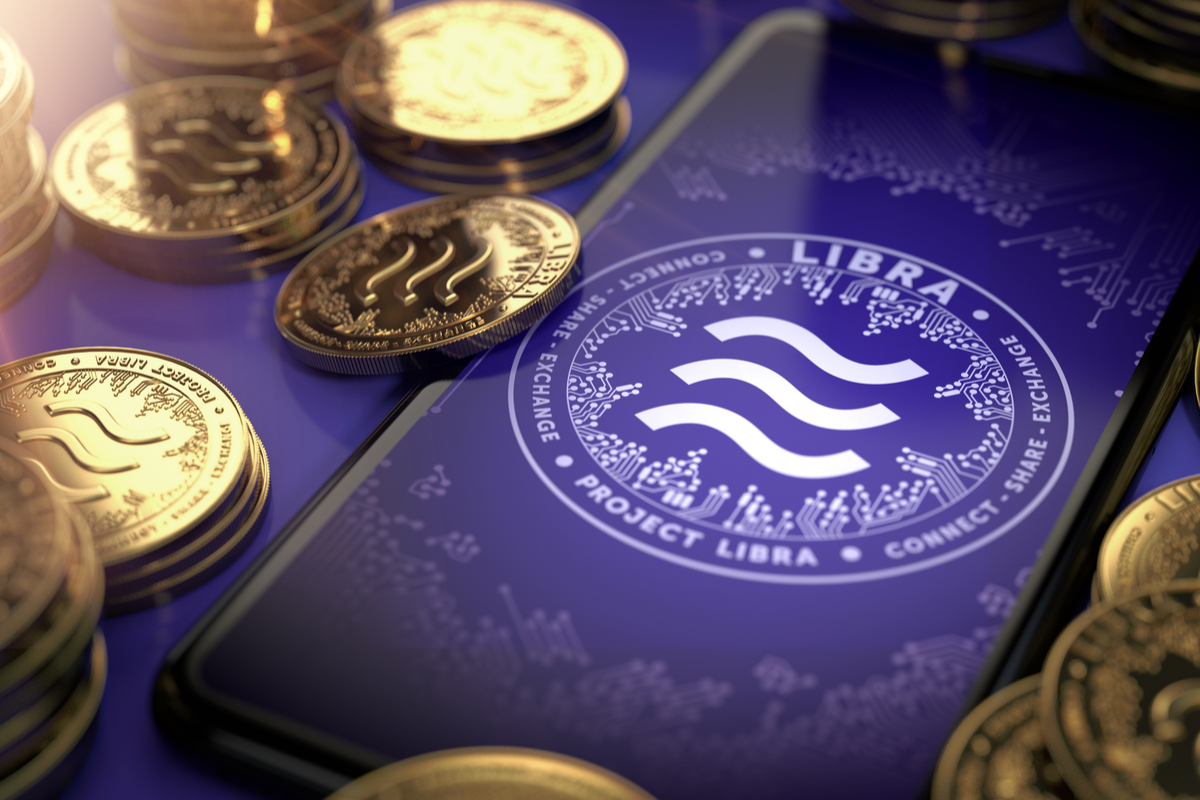If Libra Threatens Central Bank Power, that’s Great
Last week, Facebook announced its plan to partner with Uber, Lyft, Spotify, PayPal, Visa, and 23 other corporations to create a new global digital currency called Libra. Although details on the project remain scarce, the cryptocurrency would utilize blockchain technology and be governed by a subsidiary organization called the Libra Association.
Libra is just the latest example of how private companies are entering the market and devising innovative ways to reach the 1.7 billion unbanked around the world, a topic that I’ve written about before.
“The central goal here really is financial inclusion,” said Dante Disparte, head of policy and communications for the Libra Association. “The goal of this new project … is to build a financial ecosystem that can plug in and empower billions of people.” Disparte stressed that the currency would specifically target the poor, women, and small businesses in the developing world.
Expanding financial access seems like an uncontroversial goal. But Libra’s announcement was met with a heavy dose of skepticism.
In a New York Times op-ed, Open Market Institute Fellow Matt Stoller criticized Libra as a dangerous threat not only to national monies but also to monetary and financial stability.
Stoller’s article raises many common concerns about the Libra — namely, fears that the innovative technology won’t be properly regulated and that Big Tech firms will use the new financial platform to exploit customers by mining and sharing their information. But his final two arguments against the Libra are even more questionable.
Systemic Risk?
Stoller claims “the Libra system — or really any private currency system — introduces systemic risk into our economy.” To quote Stoller at length:
The Libra currency is backed, presumably, by bonds and financial assets held in reserve at the Libra Reserve. But what happens if there is a theft or penetration of the system? What happens if all users want to sell their Libra all at once, causing the Libra Reserve to hold a fire sale of assets? If the Libra system becomes intertwined in our global economy … we would need to consider a public bailout.… Sorry, but no thanks: we should not be setting up a private international payments network that would need to be backed by taxpayers because it’s too big to fail.
But Stoller’s argument proves too much. To see why, just replace “Libra Reserve” with “Federal Reserve” or any other central bank. What would change? Fundamentally, nothing.
Central banks are and have always been vulnerable to speculative attacks and currency crises. They might be even more susceptible than an international private currency precisely because their value is intimately tied to the policies implemented by their national government. Just ask anyone from Argentina, Southeast Asia, Zimbabwe, Venezuela, or dozens of other nations how vulnerable national currencies are to speculative attacks. They are unlikely to bolster your confidence in the stability of state-sponsored monies.
We should avoid public bailouts for institutions that are supposedly “too big to fail.” Indeed, that’s precisely why we should allow private competition with government monopoly currencies, not prohibit it. As history has repeatedly shown through hundreds of currency crises and devaluations, no bank is more “too big to fail” in a country than its central bank. And, in practice, the systemic risk to the economy from bad central bank policy dwarfs that of any private bank or corporation.
Undemocratic?
Stoller also maintains that Libra and other private monies represent a threat to “national security and sovereignty.” He thinks allowing private actors to operate a parallel currency that operates internationally is undemocratic. “The way we structure money and payments,” he writes, “is a question for democratic institutions.” Money, according to Stoller, should be a state monopoly. “Enabling an open flow of money across all borders is a political choice best made by governments. And openness isn’t always good.”
Stoller’s argument, that monetary affairs are best left for governments to decide, ignores the extensive history of successful private money and banking systems. For centuries, precious metals served admirably as privately supplied forms of money that facilitated international trade. To be sure, the gold standard was far from perfect, thanks in large part to poorly designed banking regulations and the introduction of central banks. But it was nonetheless successful precisely because it was insulated from government mismanagement and democratic whims.
If the success of the classical gold standard — which facilitated some of the fastest growth rates ever recorded and the greatest expansion of global trade in history — is any indication, we needn’t fear private monies. Should Libra or any other private money begin to erode the market share of major national currencies like the dollar or euro, it will be because it is preferred by consumers over state-provided monies, most likely because it more closely approximates what consumers want in a money (e.g., stable purchasing power, lower transaction costs).
It’s disappointing to see someone from an organization dedicated to raising awareness about the “economic dangers of monopolization” defend government currency monopolies and decry the dangers of open markets and competition. But it’s even more disappointing that his case is rooted in the historically inaccurate view that only governments can provide sound money.
Government fiat-money systems have a terrible track record. And the most egregious offenses are not limited to dictatorships. In fact, most documented cases of hyperinflation have occurred under democratically elected regimes. At the very least, one must recognize that entrusting democratic institutions with an exclusive monopoly over money is no guarantor of stability.
The Case for Competition in Currency
Monetary protectionism is no more defensible than trade protectionism. Consumers benefit from more choice, not less.
We in the U.S. are fortunate to have a currency that is relatively stable and widely accepted around the world. Most others aren’t so lucky. Inflation rates are much higher, on average, in low-income countries. Indeed, many of those in low-income countries would be better off using more-stable foreign currencies like the dollar or adopting currency boards rather than having their own sovereign, central bank–managed money. Dollarization and currency-board arrangements work precisely because they separate money from politics. In effect, they allow a country to import its monetary policy, thereby enabling it to forgo the poorly managed money the domestic government would produce.
The same principle holds true for private monies like Libra. Friedrich Hayek famously argued for the denationalization of money and competition in currency between government and private producers on precisely these grounds. And, with the rapid advance of digital currencies five decades later, Hayek’s dream is inching ever closer to becoming a reality.
For hundreds of millions of citizens across the world, digital currencies like Bitcoin, Ripple, and potentially even the Libra don’t pose a threat to financial stability. They offer an escape from chronic financial instability and high and variable rates of inflation that result from poorly managed government monies. And, for citizens in rich countries, private currencies like Libra enable portfolio diversification and the ability to select a money that is more narrowly tailored to one’s unique needs.
Ultimately, the case for monetary competition is just as strong as the case for competition more generally. If private currencies like Bitcoin and Libra threaten the established monopolies of central banks, consumers will be better off as a result.










